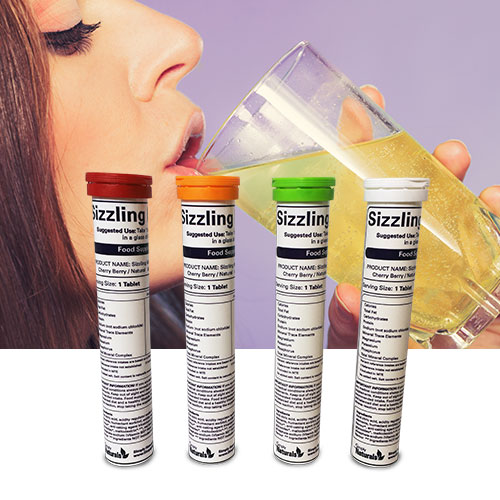Reassuringly, the world is waking up to the significant benefits minerals and vitamins have always provided and that they need to be viewed seriously and not just as some ‘health fad’. Current events have meant more time and effort has been placed in researching natural ‘remedies’ rather than laboratory developed ‘cures’ which sends a positive message that people are thankfully starting to look towards prevention once again.
Here is an article from the Medical News -June 2021, focusing mainly on COVID-19 which confirms the reason why minerals and vitamins must be an essential part of everyone’s daily diet as they provide critical support for our immune system, which in turn helps fight off the many unwanted ‘nasties’.
As the world grapples with the COVID-19 pandemic and the lack of clinically effective therapies well over a year after the pandemic was declared, attention is shifting to different ways of strengthening the immune system.
Severe acute respiratory syndrome coronavirus 2 (SARS-CoV-2) infection considerably impacts the immune system through multiple inflammatory responses and a cytokine storm.
- A balanced diet that includes vitamin A, B, C, D, E, and K, and micronutrients such as sodium, zinc, magnesium, potassium, chloride, calcium, and phosphorus may help maintain general wellbeing and strengthen the immune system, thus decreasing infections. A deficiency of vitamins and minerals in the plasma leads to sub-par performance of the immune system, leading to a poor immune state.
A study published in the journal Inflammopharmacology reviewed recent data related to the role of vitamins and minerals in treating COVID-19 patients. The primary goal of the review is to highlight the possible therapeutic role of vitamins A, B, C, D, E and K, and micronutrients as immunity boosters in COVID-19 patients.
Vitamins as immunity boosters
Recent evidence shows that nutritional supplementation might help reduce viral load and hospitalization rates in COVID-19 patients. Vitamins have antioxidant properties and immunomodulatory effects, with some of them regulating gene expression in immune cells and helping with immune cell maturation and differentiation.
It has been scientifically established that diseases such as viral infection, obesity, and diabetes affect the body’s nutrient status and deprive the body of vitamins and minerals due to the demand for activation energy for immune stimulation.
Vitamin A is a retinyl-ester also known as retinoic acid and controls various genes involved in innate and adaptive immune responses. Several studies have shown the protective nature of natural and synthetic retinoids on some viruses, including hepatitis B virus, norovirus, influenza, and cytomegalovirus.
Vitamins under the B complex category are crucial for the normal physiological functioning of the body as they help the body use nutrients such as carbohydrates, proteins, and fat.
While B1 thiamine is a co-enzyme that is important for the nervous and immune system functioning and has an anti-inflammatory effect, its deficiency affects the immune system leading to increased inflammation and oxidative stress.
Sufficient levels of thiamine help build immunity against SARS-CoV-2 as it eliminates the SARS-CoV-2 virus by triggering humoral and cell-mediated immunity.
Vitamin B2 (riboflavin) is a neuroactive compound with immunomodulatory impressions and can reduce pathogens in the blood of COVID-19 patients thus reducing transfusion–transmission risk in COVID-19.
Vitamin B3 [niacin (nicotinic acid, pantothenic acid)] has an anti-inflammatory impact, and recent studies show that it can help reduce inflammation in patients with COVID-19 and can even be used as an adjunct therapy.
Vitamin B6 (pyridoxine) influences innate/adaptive immunity and the proliferation of immune cells. A recent study showed that pyridoxine supplement relieves COVID-19 symptoms by reducing pro-inflammatory cytokines, improving immune responses, and preventing hypercoagulability.
Vitamin B9 (folic acid, folate) is essential for DNA and protein synthesis and plays a crucial role in the adaptive immune response. According to a recent study, folic acid inhibits the enzyme furin and blocks the binding of the SARS-CoV-2 spike protein, which makes it helpful in controlling respiratory disease in COVID-19.
Vitamin B12 (cobalamin/cyanocobalamin) may regulate chemokine/cytokine formation and mediate the communication among immune cells in pathophysiological pathways and thus protect against various bacterial and viral infections, including COVID-19.
Vitamin C is known to support the immune system in its fight against bacterial and viral infections. Intravenous vitamin C administration significantly reduces sepsis and acute respiratory distress syndrome (ARDS). Direct and indirect evidence reveals the role of vitamin C in treating COVID-19 patients.
Vitamin D has antioxidant and anti-inflammatory properties that inhibit the overexpression of inflammatory cytokines IL-1α, IL-1β, and tumour necrosis factor-α. Literature shows that vitamin D has been investigated for use in treating acute respiratory tract infections (ARTIs). It has been reported that it modulates ACE2 expression in lung tissue, a pathogenic factor in COVID-19.
Vitamin E is a potent antioxidant and plays a crucial role in the regulation of immune system function. Studies have shown that increased vitamin E intake helps maintain immunity in elderly individuals.
Vitamin K is a fat-soluble vitamin naturally present in some foods and is a co-enzyme involved in haemostasis. Vitamin K1 is involved in the activation of hepatic coagulation factors and thus helps fight thrombotic complications in COVID-19 patients.
Disclaimer:
This article is intended for informational purposes only and does not constitute medical advice. Please consult with your healthcare professional for personalised guidance on managing your condition.
Disclosure: This website includes affiliate links, and we may earn a commission when you click on any of these links. Your support helps us continue providing valuable content. Thank you!
FEATURED PRODUCTS
Sizzling Minerals
Discover The world’s first and only, great tasting effervescent wafer containing our Pure Plant Derived Minerals Complex.
The world’s first and only, great tasting effervescent wafer containing our Pure Plant Derived Minerals Complex. Each Sizzling Mineral wafer/tablet contains the full spectrum of plant derived minerals and trace elements and the taste is astounding. Children love the taste so you should no longer be faced with the difficulty of getting your children to take the minerals they need daily.
Simply Cardio Flow
Discover L’Arginine / L’Citreline product Nitric Oxide.
A formulation based on the groundbreaking discovery of Dr. Louis Ignore Phd for optimum Cardiovascular Heart Health.
This is a new improved patented formula. Increasing Bio-availability, Potency and Persistence of L-arginine in the blood stream leading to Nitric Oxide production associated with good heart Health.
Simply Fizzy Vitamins
- Vitamin A
- Vitamin B1 (Thiamine)
- Vitamin B2 (Riboflaven)
- Vitamin B3 (Niacin)
- Vitamin B5 (Pantothenate)
- Vitamin B6 (Pyridoxine)
- Vitamin B12 (Methylcobalamin)
- Vitamin C
- Vitamin D3
- Vitamin E
- Vitamin K
- Biotin
- Choline
- Bioflavonoids
- Folic Acid
Vital Role of Minerals
Mineral supplementation has been shown to positively impact immunity in viral infections and prevent and reduce cardiovascular and cerebrovascular diseases, which are features of severe COVID-19 infections.
Early COVID-19 studies show that long-term mineral deficiency may lead to an increase in ACE2 levels in lower respiratory tract cells, which in turn could increase the severity of SARS-CoV-2 infection.
Studies show that levels of sodium significantly decrease in COVID-19 patients, and low potassium levels can lead to an increase in ARDS and acute cardiac injury risk, which is a common complication in COVID-19.
Calcium eliminates viruses from the cells and reports show that severe COVID-19 patients have a lower calcium concentration compared to those with less severe disease.
Studies also report low phosphorus levels in severe COVID-19, which shows the importance of monitoring the serum phosphorus levels in critical COVID-19 patients.
Magnesium supplementation may be useful in coping with stress caused by the pandemic and post-traumatic stress disorder in COVID-19 survivors and HCPs. It also regulates various immune functions and plays a vital role in the immune response to viral infections.
Trace elements such as zinc, copper, manganese, and selenium also show antiviral activity by inhibiting viral replication in the host cells.
Zinc acts as an active agent for immunity against H1N1 influenza, and there is evidence of a decline in ACE2 activity in rat lungs after Zn supplementation. In vitro data shows that Zn2+ cation inhibits SARS-CoV-2 RNA polymerase by suppressing its replication. Hence, zinc supplementation may be an adjuvant therapy in COVID-19 treatment.
Based on the above analysis of the role of vitamins and minerals in fighting COVID-19, it can be concluded that vitamins and micronutrient supplementation may positively impact COVID-19 outcomes.
Journal reference: Kumar, P., Kumar, M., Bedi, O. et al. Role of vitamins and minerals as immunity boosters in COVID-19. Inflammopharmacol (2021). Find more at Simplay Naturals
Invite others, grow your network, and earn commissions






















